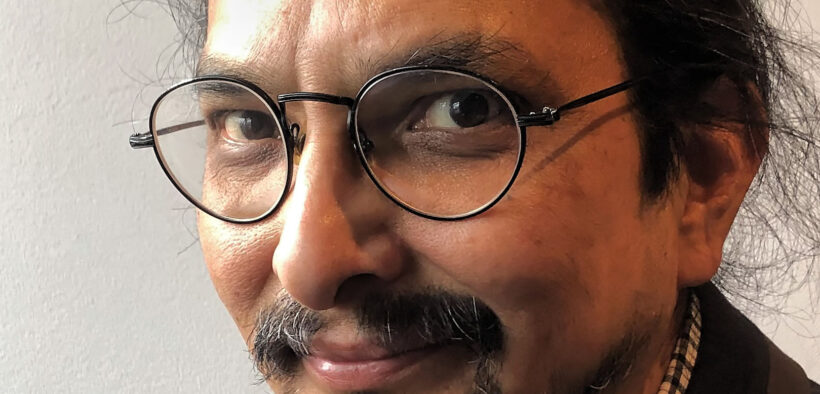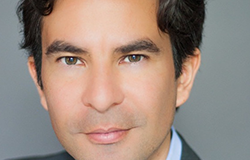The Indigenous Perspective on our Global Ecosystem

Indigenous people the world over understand that they are not beings external to the environment – that is, there is no ‘environment;’ there is only the world we live in, something more akin to an ecosystem. Thinking about the world outside as an ecosystem means seeing that the whole thing is ‘one’ system, constructed from innumerable smaller systems: photosynthesis, watersheds, weather patterns, the migration of birds and other animals, and on and on. Indigenous people have long understood that we stand together with all of the living beings of this planet – all in it together; all dependent upon one another.
As Europeans arrived on the shores of Turtle Island and ventured inland, they were particularly amazed by the forests – largely a monoculture of what would become the ‘American chestnut.’ The trees themselves were so well spaced that in many places you could pull a horse-drawn carriage through them without roads or paths. The American chestnut is a unique species. The chestnuts can be gathered and stored over the winter, and when boiled they turn into a milky, nutritious meal. The wood of the American chestnut is highly prized: it cuts straight and with few low branches. The tree trunk can produce board feet after board feet of knot-free timber. Most of the railroad ties in the United States were originally produced from American chestnut trees.
I mention the American chestnut for two reasons. First, the forests into which early settler people first wandered were not, and had not for centuries been, in any kind of primordial state. Indigenous people worked the forests on a massive scale. They slashed and burned to control growth and create environments that encourage particular kinds of interactions with nature: the deer feed off the many green sprouting trees, and many bird species can only thrive in recently burned out forests.
But Europeans could not understand what they were seeing – the whole landscape was shaped on such a massive scale that the work itself was invisible to the Europeans. Indigenous people did not work the land as such. Instead, they worked with the land in an ancient dance of management and stewardship – to wit, the making and remaking of forests in conjunction with constantly changing waterways via the work of our partners in this endeavor, the beaver beings who, by building dams, altered the course of rivers and flood plains in annual form, just as Indigenous people worked with the forests. And Indigenous people understood that they, as human beings, were, and remain, an active part of that ecosystem – not a bystander or a beneficiary, but a cog with a role to play; a unique role for which the Creator equipped us uniquely.
The second reason I bring up the American chestnut is that the tree is now largely extinct. A chestnut blight arrived, like the settlers before it, and within 50 years, billions of American chestnuts were lost to the blight. Most now live in laboratories. Science has been trying, for several decades, to bring the species back with immunity to the fungus.
There will probably be a time in the coming months and years when Indigenous people will rightly assert the wisdom of their traditional knowledge – traditional knowledge that we now call ‘environmental management,’ but which to Indigenous people is more properly understood as the concept of stewardship. There will come a time to assert Indigenous knowledge systems as a methodology for saving the watersheds, managing forests, protecting the animals and flora, and, in the process, all of us: our water, our air, and the food we eat.
There will come a time to assert Indigenous knowledge systems as a methodology for saving the watersheds, managing forests, protecting the animals and flora, and, in the process, all of us: our water, our air, and the food we eat.
Still, that is not the ecosystem about which I am worried today – though I am indeed worried about the various catastrophic effects of global warming and climate change. The ecosystem about which I am worried in the short and immediate term is the economic ecosystem that we humans have constructed all around us. Indeed, we will have to reconsider economic distribution. Yes, we should understand Covid-19 as part of and a consequence of climate change. Yes, we should all understand health care to be a basic human right, and not something against which to be insured. But for the moment, my worry is as follows: Indigenous people understand that they are actors in an ecosystem. We see the system as a whole, and we do our best to be good actors – citizens within a global system with a part to play. Yet I do not think that very many of us realize the complexity of the economic ecosystem that, for better or worse, we have built. That economic ecosystem is all around us like a spider web – gossamer, fragile, though resilient if maintained – stitching together our global political economy. I do not favour the current distribution of wealth and political power, or the way in which we are destroying the fragile system we call ‘the environment.’ However, the fact that I desire a different system cannot mean that I – we – can ignore the fact that you go to the global pandemic with the social and economic system that you have (as it were), and not the one that you want.
I do not think that very many of us realize the complexity of the economic ecosystem that, for better or worse, we have built. That economic ecosystem is all around us like a spider web – gossamer, fragile, though resilient if maintained – stitching together our global political economy.
And do not think that I am putting economic health over the health and well-being of the poor and those who find themselves ‘essential’ for $12 an hour. At a fundamental level, the movement of goods and resources means the movement of food and energy. And the food that feeds us, and the energy that we use to cook that food, travel along existing supply chains.
My view is that to the extent that we really do live in a particular economic ecosystem – with particular supply chains and means of moving goods and energy – then we need to acknowledge that, catalogue it, and launch a series of international summits. Never mind the horrific outbreaks of Covid-19 in the slaughterhouses – as terrible as these are, we do not, in the end, invariably need to eat meat. But we do need to eat. So how do we coordinate the movement of food and oil around the world when there are, as there will be, frequent lockdowns and quarantines in our ports and elsewhere when the virus flares?
We, as global citizens, cannot simply look out at our existing ‘environment’ and that hope someone else fixes the problem. What I see is an immediate need for international coordination. It is so easy not to worry because this is a future problem, and in that we are being tested in precisely the same way that the virus tests our resolve as individual citizens: the two-week delay in the onset of serious symptoms means that everything looks good today, but exponential growth returns weeks later if we lose our resolve to shelter in place.
Everywhere I look, cities are opening up, subways and metros are experiencing more ridership than in months, people are shopping, and swimming pools are opening. The systems problem is a future one, but the problem of a global pandemic is one that we need to face in the here and now. To be sure, the global supply chain has held together. Food gets grown and delivered; the electrical grid is wholly intact. But that is now. Today. We need to be thinking about three weeks, three months, or maybe even three years from now. With ports opening and closing in response to the virus, the supply of goods will become unsteady without international coordination. The manufacturer of Africa’s most popular condom has not been able to receive materials to keep up production – the latex is trapped in a port somewhere – and so the shipment of condoms has ceased. There will, as such, be enormous public health consequences for a continent that certainly needs fewer such challenges.
To be sure, the global supply chain has held together. Food gets grown and delivered; the electrical grid is wholly intact. But that is now. Today. We need to be thinking about three weeks, three months, or maybe even three years from now.
In Canada, we have truckers who cannot find bathrooms. Literally, the supply chain upon which we most depend to deliver goods and resources is being hobbled by our interprovincial inability to service bathrooms. Migrant workers are like the bees of our food system, and we are doing so precious little to protect their lives: cramped quarters and no ability to quarantine – all for the lowest wages we can pay them. Grocery clerks, gas station attendants, corner store staff, warehouse workers – all are now essential, at minimum wage and without paid sick leave.
As an Indigenous person, I can say that my family, my people, we have seen the corruption and failure of the systems upon which we rely, and the consequent disasters that befell us. The intentional slaughter of the entire buffalo population left starving and devastated whole nations for whom the buffalo was a primary food source, and also the supplier of materials with which to make clothes and shelter. There was no post-buffalo bounce for my people. Once the buffalo component of the economic system was gone, my people starved.
The intentional slaughter of the entire buffalo population left starving and devastated whole nations for whom the buffalo was a primary food source, and also the supplier of materials with which to make clothes and shelter. There was no post-buffalo bounce for my people.
My worry today is that we – all of us – have constructed an equally delicate system right on top of the actual ecosystem of water, air, land and sea. We are failing to see not only that the system is in danger, but that there is a real structure there at all. We are failing to secure our supply lines, protect our most important workers and see, globally, that our only hope is through massive international coordination. There is no mine and yours anymore. Each of us is part of a shared economic ecosystem – every part dependent on the other, our fates locked together, and all around us, people just want to get back to the mall, get their haircut, or hit the beach.
The global economy and pandemic do very much seem like they are someone else’s problem, until they are not. And I do fear that we are on the verge of becoming this century’s American chestnut – left vulnerable, and then extinguished.



